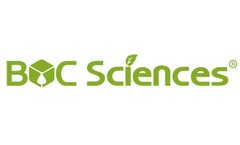Refine by
Immunotherapy Articles & Analysis: Older
84 articles found
This approach has opened new avenues for immunotherapy, providing hope for treating conditions like cancer, autoimmune disorders, and genetic diseases. ...
To date, scientists have leveraged various therapeutic avenues, including precision medicine, targeted therapies, and immunotherapy. However, issues such as drug delivery across the blood-brain barrier, tumor heterogeneity, and therapeutic resistance remain unresolved. ...
As our understanding of the immune system and disease pathology continues to deepen, liposomes are likely to play an increasingly important role in the development of novel immunotherapies. In conclusion, while liposomes have made significant strides in the field of drug delivery, ongoing research is needed to overcome the existing challenges and fully harness their potential. ...
By harnessing the power of innovative technologies like ISH probes, researchers can unlock new possibilities in the field of immunotherapy and contribute to the ongoing efforts to combat cancer. In conclusion, the integration of CABR™ ISH probes into research protocols has the potential to drive significant progress in the field of cancer immunotherapy. ...
A common method is to use PCR technology to amplify and clone the gene encoding the antibody into a sequencing vector, and then sequence it using standard Sanger sequencing or high-throughput sequencing technology.Boxcab ab AntibodyThe Boxcab ab antibody is a special antibody that is widely used in immunotherapy and disease diagnosis. This antibody has a high degree of ...
Current research focuses on improving vaccine platforms, identifying new tumor antigens, and combining vaccines with other immunotherapies for synergistic effects. The results so far are promising, with several clinical trials showing enhanced survival rates and tumor regression. ...
Retrieved 8 June 2014. 2 Bloch O (2015). "Immunotherapy for Malignant Gliomas". Current Understanding and Treatment of Gliomas. ...
By studying the diversity and function of T cell antigen receptors, we can better understand immune responses, disease pathogenesis, and the development of immunotherapies. Continuous advances in this field will help improve our understanding of the immune system and are expected to bring breakthrough progress in the treatment of various immune-related diseases.T Cell Antigen ...
PC is highly resistant to chemotherapy and radiotherapy due to its systemic aggressive nature, complex mutational environment, and desmoplastic stroma. Therefore, immunotherapy is a field worth exploring to address this deficiency. Meanwhile, cancer vaccines stand out in research for their safety, effectiveness, and low cost. ...
Particularly, immunotherapy can be used alone or in combination with other treatments like chemotherapy or radiation therapy. For example, the development of breast cancer therapeutic antibodies is usually linked with targeted therapy for the complexity of tumor cells. Immunotherapy is a promising approach in treating a variety of cancers and is continuing to be ...
Dr. Kate Sasser from Tempus led a discussion on the potential of antibody-drug conjugates (ADCs), their challenges in targeting tumor antigens, and the future of cancer treatment with Dr. Daniel Johnson, Dr. Funda Meric-Bernstam, and Dr. Kellogg Parsons. The oncology field is rapidly advancing with the development of antibody-drug conjugates (ADCs), offering new hope for ...
ByTempus
Combination therapy: Combining ADCs with other treatments, such as immunotherapy or other targeted therapies, can increase the effectiveness and decrease resistance to the treatment. ...
This technology is being used to advance our understanding of tumor immunology, support immunotherapy approaches, and discover new cancer biomarkers. Applications of Luminex Technology in Oncology Research In recent years, Luminex technology has been used to profile cytokines in cancer patients, providing valuable insights into the complex interplay between the tumor and the ...
This technology is being used to advance our understanding of tumor immunology, support immunotherapy approaches, and discover new cancer biomarkers. Applications of Luminex Technology in Oncology Research In recent years, Luminex technology has been used to profile cytokines in cancer patients, providing valuable insights into the complex interplay between the tumor and the ...
Currently, researches on monoclonal antibody drugs development expand the range to immuno-oncology, targeted therapy, and immunotherapy. Researchers have proposed more prospects for monoclonal antibody therapy drugs, such as the development of personalized drugs and combination therapy. ...
An allergist can do tests to determine whether you have a dust allergy and offer treatment choices such as antihistamines, decongestants, or allergy shots (immunotherapy). The allergist will ask comprehensive questions about your work and home surroundings, family medical history, frequency and severity of symptoms, and exposure to pets and other potential triggers to locate ...
The tumor cell membrane is coated with PLGA nanoparticles, and a nanovaccine based on PLGA as the core is constructed, which can be used to fight melanoma B16 of ...
Strategies such as gene therapy, small molecule inhibitors, and immunotherapies are being explored to target CDH1 loss in cancer cells. ...
As immune checkpoint tracers for macrophage-infiltrating immune diseases, nanobodies can identify immune response patterns, predict treatment responses, and track the biological processes of immune system activation, thereby improving the effectiveness of immunotherapy. The clinical research targets of nanobodies used for molecular diagnosis include HER2, HER3, PD-L1, AlbudAb, ...
CAR-T/CAR-NK Cells Development for Drug Delivery Systems As a groundbreaking advancement in immunotherapy, CAR-T (Chimeric Antigen Receptor T-cell) and CAR-NK (Chimeric Antigen Receptor Natural Killer) cells have shown remarkable success in treating certain cancers. ...













